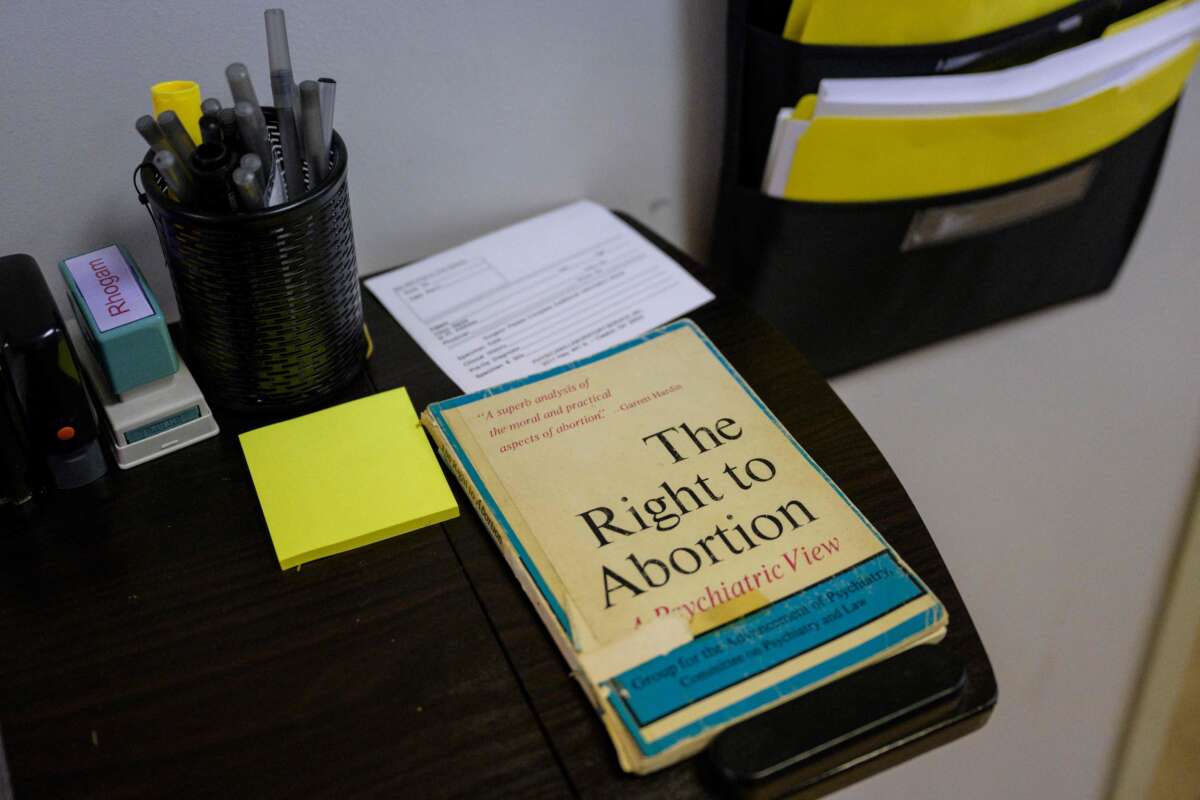The Centers for Medicare and Medicaid Services are currently investigating two hospitals in Missouri and Kansas that violated federal law by refusing to provide an emergency abortion to a woman who was experiencing premature labor, according to The Associated Press.
The woman, Mylissa Farmer, was forced to travel to Illinois to terminate her pregnancy, despite the risk of serious infection or losing her uterus if she did not undergo an abortion.
“It was dehumanizing. It was terrifying. It was horrible not to get the care to save your life,” Farmer told The Associated Press.
The National Women’s Law Center filed complaints with the federal Centers for Medicare and Medicaid Services, launching the agency’s investigation into the hospitals that refused to provide Farmer with emergency care.
Xavier Becerra, the U.S. Health and Human Services Secretary, said on Monday that the two hospitals violated the Emergency Medical Treatment and Labor Act, or EMTALA, which mandates that states provide access to emergency services regardless of contradictory state laws.
“As we have made explicitly clear: we will use the full extent of our legal authority, consistent with orders from the courts, to enforce protections for individuals who seek emergency care – including when that care is an abortion,” Becerra said in a statement.
While abortion is legal in Kansas until up to 22 weeks of pregnancy, Missouri is one of 24 states that banned or severely restricted abortion after Roe v. Wade was overturned in June of 2022. Though Missouri’s abortion ban makes exceptions if a pregnant person’s life is in danger, and federal law requires doctors to provide patients with abortions in emergencies, many practitioners have refused to provide emergency abortions out of fear of losing their licenses or facing criminal charges. In Kansas, a new law that will take effect on July 1 could result in health care providers who perform abortions facing felony charges.
“The Missouri statute puts doctors and providers between a rock and a hard place,” Genevieve Scott, senior counsel at the Center for Reproductive Rights, told KFF Health News. “It creates an extreme deterrent to providing care in medical emergencies, given the risk of providers facing prosecution and losing their livelihood. That clearly threatens the health and lives of every pregnant person in the state.”
This isn’t the first time that Missouri hospitals have been investigated for violating EMTALA. In October of 2022, a woman whose water broke early had to leave the state to receive an abortion after Missouri hospitals refused to let doctors provide her with abortion care.
Missouri and Kansas are not the only states where pregnant people have been denied abortions in violation of federal law — similar cases have been documented in West Virginia, Texas and Idaho.
“Today, we send a reminder to hospitals participating in Medicare: you are obligated under EMTALA to offer stabilizing care to patients who need emergency care, and we will not hesitate to enforce your obligations under the law,” Becerra said in his statement.
Our most important fundraising appeal of the year
December is the most critical time of year for Truthout, because our nonprofit news is funded almost entirely by individual donations from readers like you. So before you navigate away, we ask that you take just a second to support Truthout with a tax-deductible donation.
This year is a little different. We are up against a far-reaching, wide-scale attack on press freedom coming from the Trump administration. 2025 was a year of frightening censorship, news industry corporate consolidation, and worsening financial conditions for progressive nonprofits across the board.
We can only resist Trump’s agenda by cultivating a strong base of support. The right-wing mediasphere is funded comfortably by billionaire owners and venture capitalist philanthropists. At Truthout, we have you.
We’ve set an ambitious target for our year-end campaign — a goal of $250,000 to keep up our fight against authoritarianism in 2026. Please take a meaningful action in this fight: make a one-time or monthly donation to Truthout before December 31. If you have the means, please dig deep.
